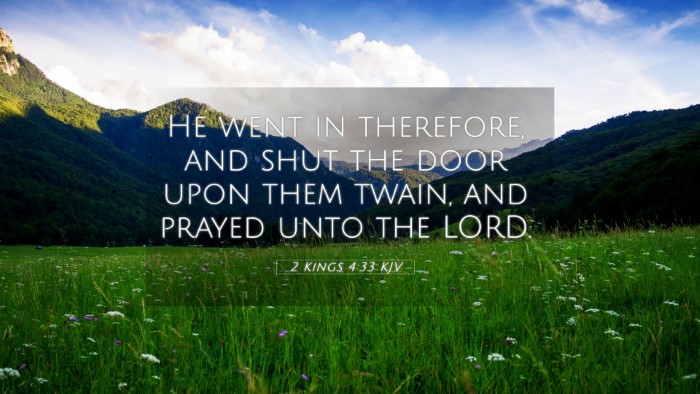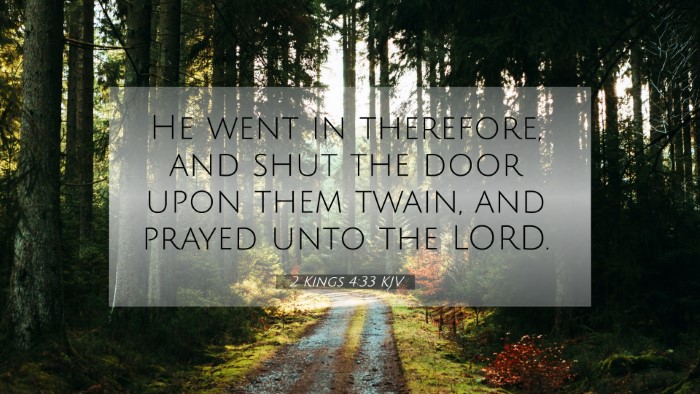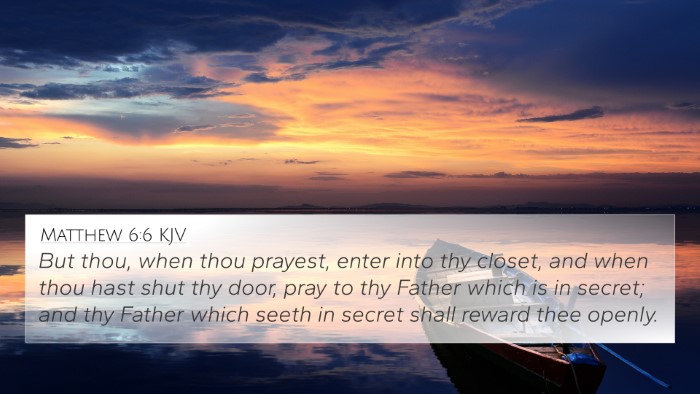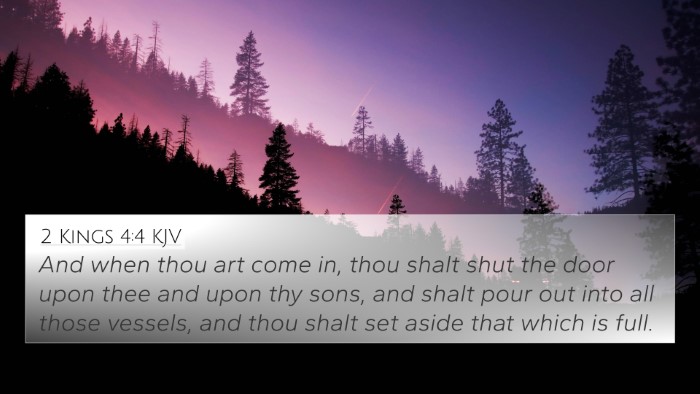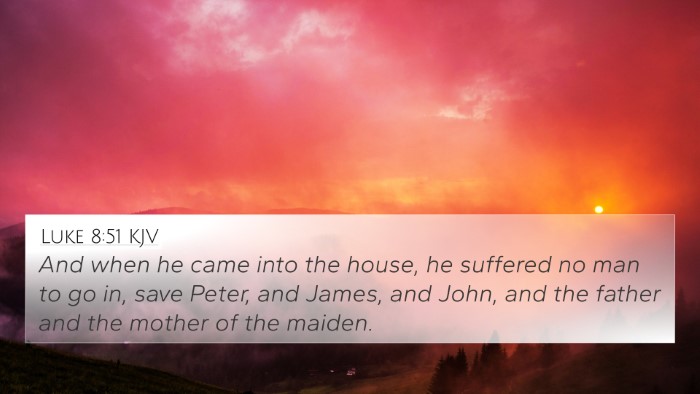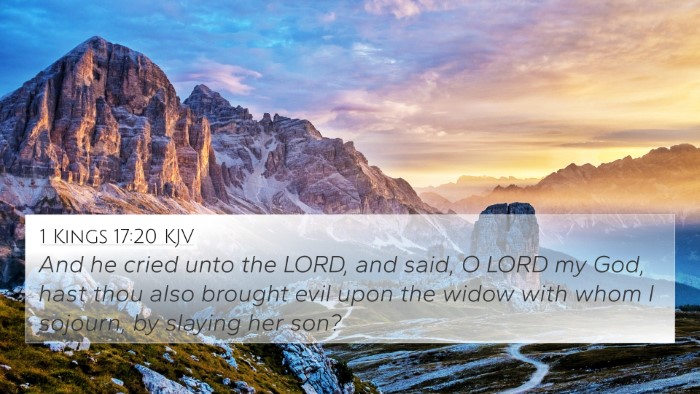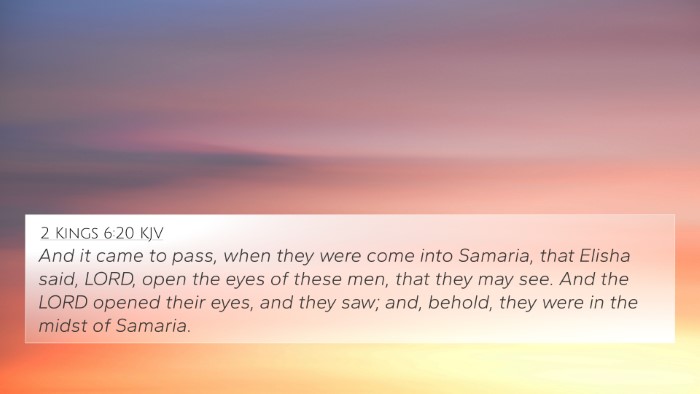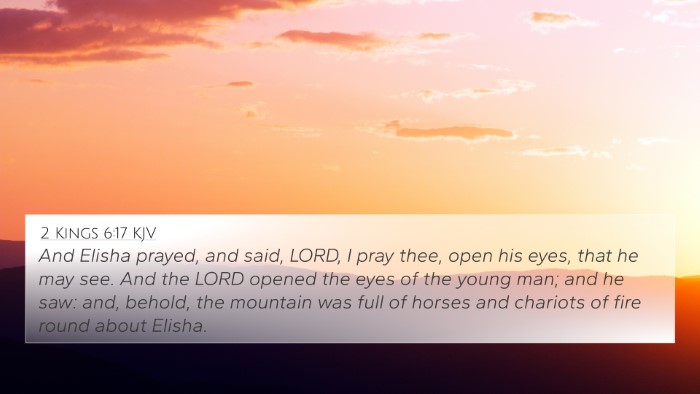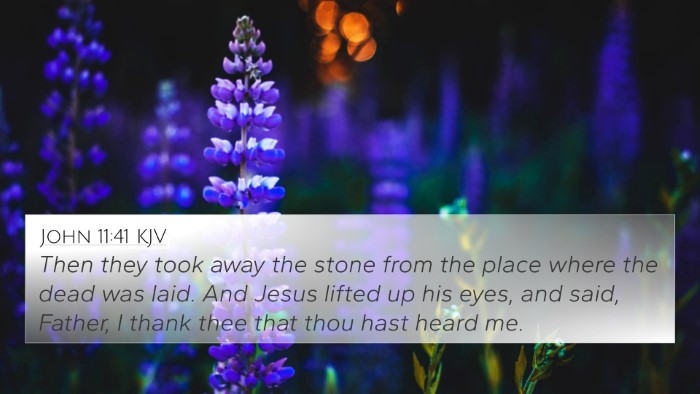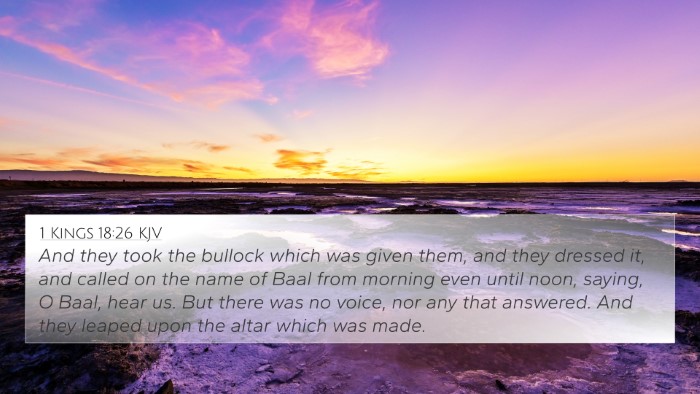Understanding 2 Kings 4:33
This verse takes us into a profound moment where the prophet Elisha enters the room of the deceased child and closes the door behind him. The act emphasizes the seriousness of the situation and creates an intimate setting for what is to occur next. Various commentaries provide valuable insights into its significance.
Context of 2 Kings 4
The narrative of 2 Kings 4 illustrates the wonders performed by Elisha as a servant of God, showcasing themes of faith, resurrection, and divine intervention. This chapter includes miracles such as the multiplication of the widow's oil and the resurrection of the Shunammite's son. Each event reinforces God's power and concern for His people.
Commentary Insights
- Matthew Henry:
Henry suggests that entering the room and shutting the door indicates a desire for solitude and a focused prayer towards God. It demonstrates Elisha's reliance on divine intervention, particularly in desperate times, indicative of faith's power.
- Albert Barnes:
Barnes emphasizes that Elisha's actions were deliberate, showcasing a progression of faith. The act of shutting the door symbolizes his intention to create a sacred space for prayer and divine work, underscoring that some miracles require deep personal intercession.
- Adam Clarke:
According to Clarke, the closed door serves as a function of separating the miracle from the skepticism of onlookers. It illustrates the notion that certain divine acts are personal and require private communion with God.
Thematic Connections
2 Kings 4:33 resonates throughout the Bible in terms of themes of prayer, resurrection, and isolation for divine work. It draws connections with other scripture that also addresses miraculous events and God's power to revive and restore life.
Cross-Referencing Related Bible Verses
Here are some notable cross-references that enhance our understanding of 2 Kings 4:33:
- 1 Kings 17:21-22: Elijah raises the widow's son.
- John 11:43-44: Jesus raises Lazarus from the dead.
- Luke 8:52-55: Jesus raises the daughter of Jairus.
- Matthew 17:20: Faith can move mountains, paralleling belief in supernatural occurrences.
- Romans 8:11: The Spirit gives life to our mortal bodies, connecting to the resurrection theme.
- Hebrews 11:35: Faith by women received their dead raised to life, supporting resurrection through divine faith.
- Job 14:14: Questions the possibility of life after death, tying in with resurrection discussions.
- Matthew 9:18-19: Another instance of a daughter being raised by faith in Jesus.
- Romans 4:17: God gives life to the dead, reinforcing the power of divine intervention.
Connecting Themes Through Cross-Referencing
This episode in 2 Kings showcases God's providence, exemplified through the faith of Elisha and the Shunammite woman. It encourages believers to find connections between various Bible verses that bolster their understanding of God’s workings in miraculous events. Exploring such connections can deepen one’s biblical study through effective tools for cross-referencing.
Conclusion
Overall, 2 Kings 4:33 is more than a historical account; it is a rich event that speaks to the importance of prayer, the power of faith, and God's ability to perform miracles. By utilizing cross-referencing and thematic connections, individuals can gain a deeper understanding of both this particular verse and its broader implications in the Scripture.
Keywords for Further Study
For those seeking to delve deeper, consider exploring the following keywords:
- Bible verse cross-references
- Connections between Bible verses
- Bible verses that relate to each other
- Tools for Bible cross-referencing
- Identifying connections between Old and New Testament
- Bible cross-reference guide
- Cross-referencing Bible study methods

